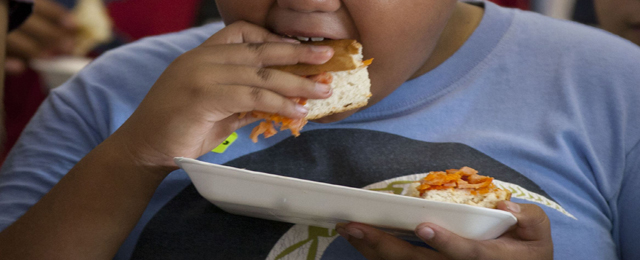Every construction worker in Mexico knows what’s his best possible breakfast – a delicious taco filled with meat and cheese and a 650ml bottle of soda. They say this combination keeps them active for the whole morning and, after all, it’s the only meal they can afford given their meager salaries.
Same thing seems to think the vast majority of Mexican society, and they are not short of reason: fast-food and soft drinks have enjoyed a difficult-to-explain tax exemption for the last 20 years in Mexico, to the point that a huge glass of soda -refill included- in a restaurant comes cheaper than buying a small bottle of mineral water. So cheap and easy to find it is that most of Mexican schools only dispose of soft drinks in their vending machines and it is sometimes impossible for the children to drink natural water.
This explosive combination of fast-food sold in every corner of the country and soft drinks cheaper than water has made of Mexico the most obese country of all OECD country members, for the first time surpassing the United States (32.8% of Mexican population is obese against 31.8% in US). Mexico is also the world leader in childhood obesity (35% of minors) and it ranks first in global consumption of soft drinks. For example, Coca-Cola has in Mexico its first market worldwide, with 172 liters drunk per person per year.
In order to revert this situation, Mexican government has been lately debating a law to increase taxes to these industries. The final outcome has been uneven. Amidst a great controversy, the Senate approved Wednesday a law for which fast-food will be charged with a 8% tax, a raise from the current 5%. Senate understands as fast-food those products providing 275 calories or more per 100 grams – frying, confectionery such as sweets and jellies, chocolates and cocoa products, custards and puddings, sweets and peanut cream among others.
Regarding soft drinks, the industry finally escaped from the toughest proposal made by opposition’s PRD party. From next year it will pay 1 cent of peso ($0.07) for every liter sold in concept of taxes, instead of the 2 cents ($0,14) some sectors of the Parliament wanted to reach.
After knowing the decision, the President of the Confederation of Industrial Chambers (Concamin), Francisco Mange Funtanet, warned that what senators just approved will generate inflation and will be an obstacle to investment, competitiveness and economic progress. Mange even said this law answers to “personal political interests” and is to severely affect hundreds of businesses and put in risk nearly 800,000 jobs.
“Every time the Department of Health has tried to remedy this problem has found a fierce counterattack by the industry. There is a massive lobbying action by soft drinks and processed food big companies. The leading brands invest massive amounts in advertising. In many schools, soft drinks and juices are the only means of hydration possible. And those are addictive products. A Mexican child is exposed to between 12,000 and 15,000 ads of sweetened beverages a year, while some studies confirm that only 100 ads are needed to bring about change in their perception. In many respects the situation is out of control,” explains National Institute of Medical Sciences and Nutrition Nutrition Director Abelardo Avila explains to The Corner.
In Mexico, soft drink companies spend $80 billion a year on advertising and benefit from special arrangements and exemptions that help them even pay less than what is written in the law. The origin of this decontrol can be found back in 1994, when the Free Trade Agreement (FTA) signed by US, Canada and Mexico left those industries totally deregulated in the Latin country, and little by little gained weight and power inside Mexico’s political circles.
Today, the obesity rate is not only a threat to the public health system, which by far has not enough funds to care for all those affected by obesity, but it also affects the national production chain, the pension system and the Mexican economy as a whole. The tragedy can be seen not only in their waists, but in the national rate of diabetes. One in six Mexicans suffer from that disease. Diabetes in Mexico has skyrocketed in the last six years from 6.4 million to 13 million affected, of which 85% have been doing without control or treatment.
The outlook “is dark,” according to a clinical study elaborated by the National Public Health Institute (INSP), particularly since 60% of Mexicans live without social security. These population is at the same time the poorest layer of the society, therefore addicted to fast-food mainly due to its low price. In 2011, the World Health Organization (WHO) published that diabetes caused by obesity is the leading cause of death in the country, with about 10 million victims. According to the same report, 26% of deaths in Mexico are due to diseases related to overweight, including diabetes, hypertension, fatty liver and associated cancers.
Even worse -such an orgy of kilos is not exclusive of Mexicans. A Food Price Watch report outlooks that by 2030 more than 190 million people will be obese in Latin America, which means an increase of 300%. The lost of productivity and economic costs may account for 5% of global GDP, ie 3.5 billion per year or $500 per person in the world, an amount similar to Germany’s GDP.
*Image: AP.






Be the first to comment on "Mexico Raises Taxes on Junk Food to Fight Obesity"